Ousmane Sembène
出生 : 1923-01-01, Ziguinchor, Casamance, Senegal
死亡 : 2007-06-09
略歴
Ousmane Sembène (January 1, 1923 — June 9, 2007), often credited in the French style as Sembène Ousmane in articles and reference works, was a Senegalese film director, producer and writer. The Los Angeles Times considered him one of the greatest authors of Africa and he has often been called the "Father of African film."
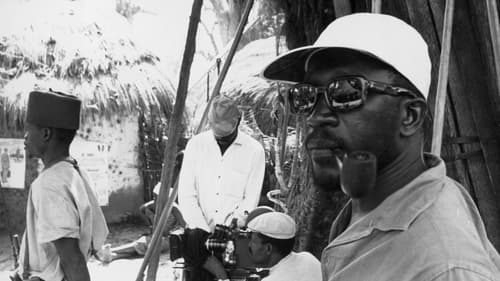
Himself (archive footage)
Meet Ousmane Sembene, the African freedom fighter who used stories as his weapon.

Self
Portrait of Tahar Chériaa. Founder of the first african cinefestival and father of panafricanism.

The film uses a collection of post-World War II black & white photographs to portray the dockworkers of Marseilles, many of whom were of African descent. Set in and around a 1947 strike protesting weapons shipments to the French in Indochina, the images evoke the life and work of Senegalese filmmaker, Ousmane Sembène, a former dockworker, and one of the founding figures of the New African Cinema of the 1960s.
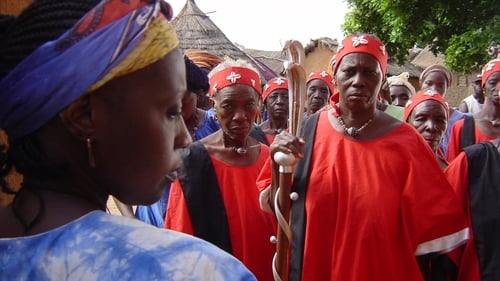
Producer
When a woman shelters a group of girls from suffering female genital mutilation, she starts a conflict that tears her village apart.

Writer
When a woman shelters a group of girls from suffering female genital mutilation, she starts a conflict that tears her village apart.

Director
When a woman shelters a group of girls from suffering female genital mutilation, she starts a conflict that tears her village apart.

Writer
A forty-year-old woman refuses to give into the stigma of unwed motherhood and climbs the ladder of success in a male dominated field.

Director
A forty-year-old woman refuses to give into the stigma of unwed motherhood and climbs the ladder of success in a male dominated field.

Senegalese documentary about the country's most famous film-maker - Ousmane Sembène. The groundbreaking director explains his philosophy, politics and hopes for the future of African cinema.

Producer
Burial of a Christian political activist in a Muslim cemetary forces a conflict imbued with religious fervor.

Writer
Burial of a Christian political activist in a Muslim cemetary forces a conflict imbued with religious fervor.

Director
Burial of a Christian political activist in a Muslim cemetary forces a conflict imbued with religious fervor.
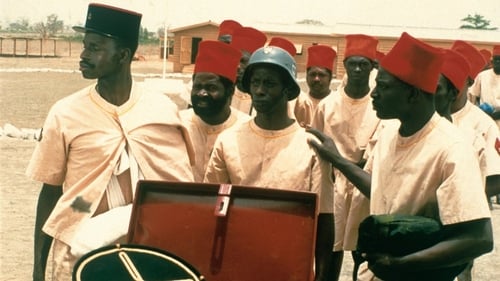
Screenplay
A Senegalese platoon of soldiers from the French Free Army are returned from combat in France and held for a temporary time in a military encampment with barbed wire fences and guard towers in the desert. Among their numbers are Sergeant Diatta, the charismatic leader of the troop who was educated in Paris and has a French wife and child, and Pays, a Senegalese soldier left in a state of shock from the war and concentration camps and who can only speak in guttural screams and grunts.

Director
A Senegalese platoon of soldiers from the French Free Army are returned from combat in France and held for a temporary time in a military encampment with barbed wire fences and guard towers in the desert. Among their numbers are Sergeant Diatta, the charismatic leader of the troop who was educated in Paris and has a French wife and child, and Pays, a Senegalese soldier left in a state of shock from the war and concentration camps and who can only speak in guttural screams and grunts.

Himself
Paulin Vieyra captures Ousmane Sembène, one of the greatest filmmakers of Africa, during the filming of Ceddo. L’Envers du Decor was completed after four years of production. As for Ceddo, it would be censored under the Senghor regime and until 1983 by the Senegalese authorities.

Writer
When King Demba War sides with the Muslims, the Ceddo kidnap his daughter, Princess Dior Yacine, to protest their forcible conversion to Islam.

Ibrahima
When King Demba War sides with the Muslims, the Ceddo kidnap his daughter, Princess Dior Yacine, to protest their forcible conversion to Islam.

Director
When King Demba War sides with the Muslims, the Ceddo kidnap his daughter, Princess Dior Yacine, to protest their forcible conversion to Islam.

Writer
It is the dawn of Senegal's independence from France, but as the citizens celebrate in the streets we soon become aware that only the faces have changed. White money still controls the government. One official, Aboucader Beye, known by the title "El Hadji," takes advantage of some of that money to marry his third wife, to the sorrow and chagrin of his first two wives and the resentment of his nationalist daughter. But he discovers on his wedding night that he has been struck with a "xala," a curse of impotence. El Hadji goes to comic lengths to find the cause and remove the xala, resulting in a scathing satirical ending.

Director
It is the dawn of Senegal's independence from France, but as the citizens celebrate in the streets we soon become aware that only the faces have changed. White money still controls the government. One official, Aboucader Beye, known by the title "El Hadji," takes advantage of some of that money to marry his third wife, to the sorrow and chagrin of his first two wives and the resentment of his nationalist daughter. But he discovers on his wedding night that he has been struck with a "xala," a curse of impotence. El Hadji goes to comic lengths to find the cause and remove the xala, resulting in a scathing satirical ending.
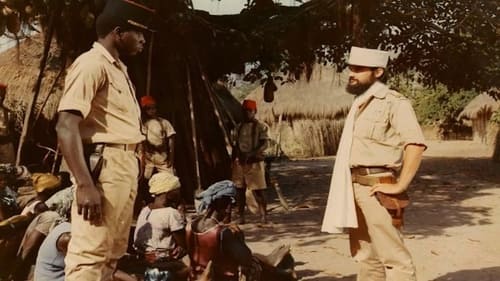
Screenplay
As World War II is going on in Europe, a conflict arises between the French and the Diola-speaking tribe of Africa, prompting the village women to organize their men to sit beneath a tree to pray.

Director
As World War II is going on in Europe, a conflict arises between the French and the Diola-speaking tribe of Africa, prompting the village women to organize their men to sit beneath a tree to pray.

Writer
A young unemployed man fends off accusations of laziness and makes a home for his pregnant girlfriend who has been rejected by her family.

Director
A young unemployed man fends off accusations of laziness and makes a home for his pregnant girlfriend who has been rejected by her family.

Public Writer at the Post Office (uncredited)
A money order from a relative in Paris throws the life of a Senegalese family man out of order. He deals with corruption, greed, problematic family members, the locals and the changing from his traditional way of living to a more modern one.

Writer
A money order from a relative in Paris throws the life of a Senegalese family man out of order. He deals with corruption, greed, problematic family members, the locals and the changing from his traditional way of living to a more modern one.

Director
A money order from a relative in Paris throws the life of a Senegalese family man out of order. He deals with corruption, greed, problematic family members, the locals and the changing from his traditional way of living to a more modern one.
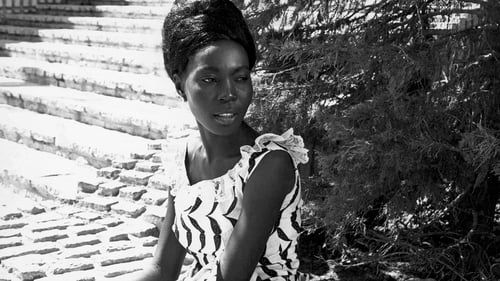
Novel
Eager to find a better life abroad, a Senegalese woman becomes a mere governess to a family in southern France, suffering from discrimination and marginalization.

The Teacher (uncredited)
Eager to find a better life abroad, a Senegalese woman becomes a mere governess to a family in southern France, suffering from discrimination and marginalization.

Writer
Eager to find a better life abroad, a Senegalese woman becomes a mere governess to a family in southern France, suffering from discrimination and marginalization.

Director
Eager to find a better life abroad, a Senegalese woman becomes a mere governess to a family in southern France, suffering from discrimination and marginalization.

Producer
The pregnancy of a young girl scandalizes her community.

Writer
The pregnancy of a young girl scandalizes her community.

Director
The pregnancy of a young girl scandalizes her community.

Producer
A cart-taxi driver goes to the city to make a living, but out of sympathy with other poverty-stricken people, he works for free and goes hungry himself.

Writer
A cart-taxi driver goes to the city to make a living, but out of sympathy with other poverty-stricken people, he works for free and goes hungry himself.

Director
A cart-taxi driver goes to the city to make a living, but out of sympathy with other poverty-stricken people, he works for free and goes hungry himself.















